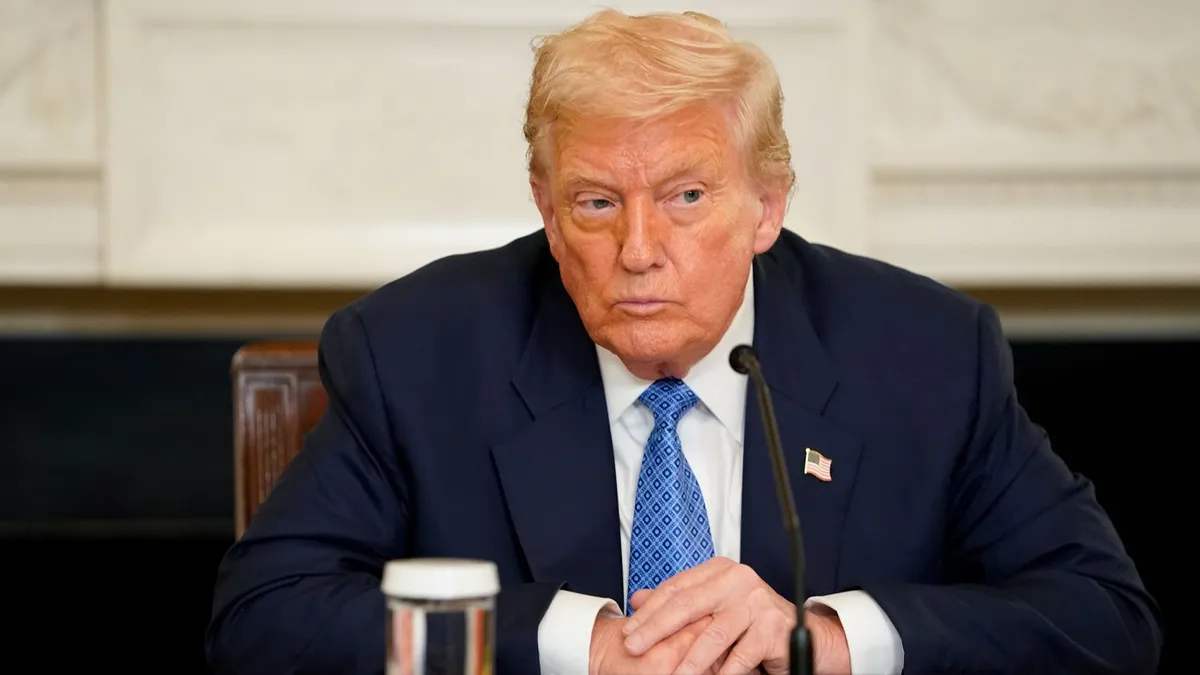
In a bold move, President Trump has significantly raised the stakes for the upcoming summit with Russian President Vladimir Putin, impacting not only the ongoing war in Ukraine but also his own political credibility. Three key advisers who have been privy to Trump's discussions regarding the summit assert that he is not merely bluffing. This meeting is no longer just a preliminary discussion; it has evolved into a critical juncture for both leaders.
Initially described by Trump as a simple feel-out meeting, the significance has escalated following his private conversations with Ukrainian President Volodymyr Zelensky and NATO leaders. Trump has outlined his primary goal: achieving a ceasefire. He has publicly warned Putin of severe consequences should he fail to halt the fighting. A senior U.S. official emphasized that this is the most serious and direct Trump has ever been in his diplomatic efforts.
The spotlight is now on Putin, who must either agree to a ceasefire or demonstrate genuine progress in negotiations. The stakes are high, as the same official stated, “If he does not, there will be severe repercussions.” This ultimatum places Putin in a challenging position, and the world is watching closely.
Trump's warning of serious consequences if Putin did not agree to a ceasefire by last Friday marks a notable shift in strategy. His initial threats seemed to wane when Putin proposed a meeting. However, a second U.S. official has asserted that this time is indeed different; Putin initiated this dialogue, and now he is compelled to deliver results. A failed summit with no repercussions could undermine Trump's future credibility.
As we analyze the possible outcomes of this pivotal summit in Anchorage, three scenarios emerge:
Unconditional Ceasefire: If Trump successfully negotiates an unconditional ceasefire, it would mark the first multi-day pause in hostilities since Russia's full-scale invasion commenced 3.5 years ago. This could represent a significant breakthrough in Trump's peace process, opening avenues for substantive negotiations despite the entrenched positions of both sides. Zelensky has made it clear that serious talks can only commence during a truce. No Movement from Putin: Should Putin remain unyielding, it could appear as though he has successfully challenged Trump on American soil. In response, Trump might escalate actions to cripple Russia's oil exports, which are crucial to its economy and military efforts. Furthermore, he could enhance arms shipments to Ukraine. A senior U.S. official noted that there are several measures that could significantly weaken the Russian economy. Conditional Agreement from Putin: There remains the possibility that Putin might respond to Trump's ultimatum with a conditional agreement. Although he has previously shown willingness to comply with ceasefire demands, he has insisted on numerous clarifications and preconditions. Trump's statements did not explicitly demand an immediate ceasefire, allowing for some flexibility, although his advisers maintain that he will gauge Putin's sincerity during the summit.Trump has stated that if the meeting proves successful, he intends to quickly arrange a follow-up summit involving Zelensky. Conversely, he has indicated that if the summit does not yield positive results, there will be no second meeting. The specifics of the potential costs for Putin remain unspecified, but Trump is focused on making progress. A U.S. official remarked, “You have to take him at face value. He wants to measure the man and his intentions, and he will proceed accordingly.”
As the world eagerly anticipates the outcome of this critical summit, the implications for both U.S.-Russia relations and the future of the Ukraine conflict hang in the balance.